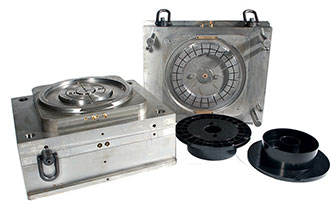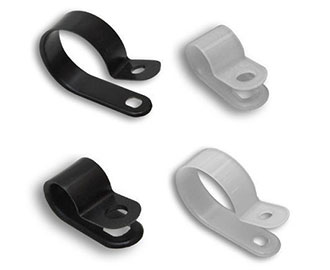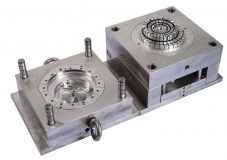Injection molding with nylon is a popular choice for many industries. This thermoplastic cloth is durable, versatile, and appropriate for various packages. Whether you’re designing gears, automotive components, or patron items, understanding nylon and its molding method is critical. Learn what nylon is, its benefits, fabric processing, and how to choose a high-quality dealer for injection-molded elements.
What Is Nylon and Best Plastic Injection Molding With Nylon
The nylon molding process is a strong and flexible plastic frequently applied in injection molding. It is ideal for its sturdiness, low friction, and resistance to warmth, as well as chemical compounds, and placed on. Nylon injection molding is suitable for making factors like gears, bearings, and automobile components. This technique shapes melted nylon into particular paperwork with the use of molds. Nylon’s capability to cope with high temperatures and self-lubricating homes make it best for business and mechanical use.
What Are the Injection Nylon Molding Materials?
Nylon substances are flexible and may be tailored to fit extraordinary packages. The most generally used Injection molded nylon parts:
Nylon 6
Nylon 6/6
Nylon 66
Nylon 6/66
Each type has its particular home, but all nylons share a high melting temperature and splendid tensile electricity. Before molding, stabilizers can be delivered to the nylon plastic materials to defend it from damage caused by UV light, particularly for parts exposed to direct daylight.

Processing nylon requires a cautious interest in injection temperature, mildew temperature, and cooling time. Keeping nylon within the screw for too long can degrade the material, affecting the final product’s exceptional.
Advantages of Nylon injection Molding
Nylon injection molding design is a desired cloth in plastic injection molding for several motives. Its mechanical and bodily homes make it ideal to produce first-rate, durable components. Let’s look at its key advantages:
Low Melt Viscosity
Nylon has a low melt viscosity, so it flows smoothly throughout the injection section. This property is beneficial for growing components with thin walls or tricky designs.
Chemical and Abrasive Resistance
Nylon resists many chemical substances, including dilute acids, ammonia, and alkaline solutions. It also correctly withstands fuels, oils, and organic solvents. Its low coefficient of friction offers it super abrasion resistance, making it ideal for wear-and-tear applications.
High-Temperature Resistance
Nylon can withstand excessive temperatures, making it suitable for applications requiring prolonged exposure to warmth. Glass-bolstered nylon, for example, can withstand even higher temperatures, making it ideal for car and business additives.
Fatigue Resistance
Nylon’s fatigue resistance makes it an incredible choice for elements subjected to repeated strain, such as gears or mechanical components. A proper layout with rounded edges complements this energy.
Tensile and Mechanical Strength
Nylon is highly flexible and has tensile strength comparable to a few metals. Adding fillers like glass fibers or adjusting the mold temperature can improve the material’s energy and balance.
These houses make nylon versatile for industries including automotive, customer goods, and medical devices.
Nylon Injection Molding Design Guidelines
Proper format guarantees easy manufacturing, the best additives, and better overall performance. Here are key factors to bear in mind whilst thermoplastic nylon injection with nylon:
Wall Thickness
For nylon injection molding, keep a wall thickness of 0.030 and 0.115 inches (0.76 – 2.92 mm). This range is thinner than most exceptional materials due to nylon’s low soft viscosity, which allows it to drift without issues. Permanently preserve wall thickness uniform. If adjustments are critical, motivate them to be sluggish, with a variant of no more than 10% to 15% among adjacent walls. Avoid walls thicker than 6 mm, as they can result in defects. Nylon’s thinner walls assist in making additives lightweight without dropping strength.
Radii
Nylon is sensitive to pressure at sharp corners, which could weaken the aspect. To avoid this, generally, incorporate smooth nook radii into your design. A radius larger than 0.5 mm is usually encouraged. The nook radius must be approximately 75% of the wall thickness for the best results. This design adjustment allows the distribution of stress calmly and improves element durability.
Draft Angle
Nylon parts can occasionally be molded without a draft angle because of their low friction, which makes it easy to eject additives from the mold. However, a slight draft attitude—between 0.5° and 1°, consistent with aspect—can boost production and reduce cycle instances. This benefits parts that want smooth surfaces, like gears or flat panels.

Part Tolerances
Nylon is bent to cut back more than many one-of-a-kind plastics, making precision difficult. However, by carefully controlling shrinkage charges, you can acquire constant tolerances to your factors. This makes nylon ideal for precision components like gears, bearings, and distinctive small mechanical components.
Top Supplier for Nylon Injection Molded Parts Wholesale
When it involves sourcing nylon injection molded components, EX MOULD CO. leads the market. This depended on the custom nylon molding services provider offering an extensive range of nylon injection molding services, such as:
Custom Mold Design: High-precision molds tailored to your desires.
Injection Molding Services: Advanced gadgets ensure constant first-class.
Competitive Pricing: Direct nylon part manufacturing unit pricing reduces fees for bulk orders.
EX MOULD has full-size enjoy running with customers from various industries, including automotive, electronics, and household home equipment. Their commitment to pleasant and patron delight makes them a pinnacle choice for nylon injection molded elements.
Why Choose EX MOULD CO.?
Expertise in handling complicated molds, including component structures and hydraulic middle pulls.
High requirements of mildew creation and product precision.
Professional crew committed to meeting customer requirements.
If you’re looking for a dependable companion for nylon injection molding, EX MOULD is your excellent option.

